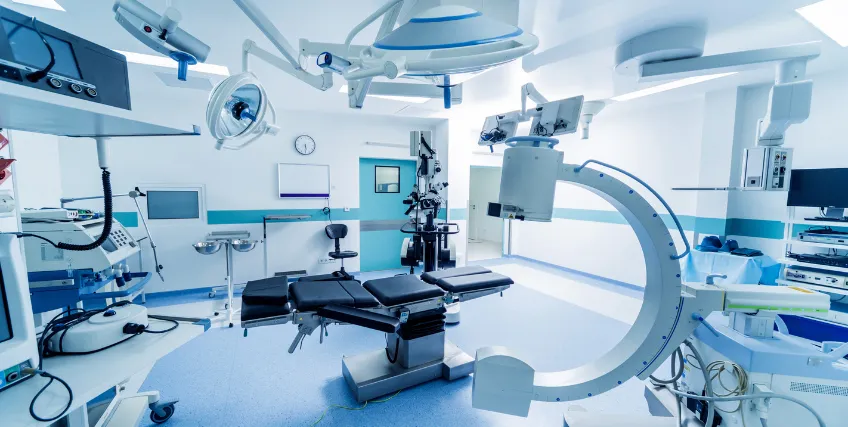How to Get Business Financing for My Veterinary Practice
March 10, 2025 | Last Updated on: March 10, 2025

Business financing is essential for any business, and veterinary practices are no different. As a veterinarian, your number one concern is pet care. But as a business owner, your priorities must include the success of your veterinary practice.
In this article, we discuss the different financing options available for veterinary practices and how to select the best one.
Why Veterinarians Need Business Funding:
Whether you are considering starting a new business, acquiring an existing business, or improving your established veterinary practice, you’re going to run into significant expenses. Common costs associated with veterinary practices include:
- Real estate (lease, purchase, or renovate)
- Veterinary care equipment
- Medical supplies
- Computer software and hardware
- Business licenses and permits
- Insurance
- Marketing
- Operating expenses
- Continuing education
You’ll likely need some kind of financing in order to cover these costs and get your veterinary practice up and running, or to purchase an existing practice.
Veterinarian Business Loans for New Practices vs. Established Practices
Getting business funding might seem overwhelming to new veterinary professionals. And you might worry that you don’t meet all the requirements needed to get approved for an SBA loan or other business funding. There are several options that appeal to new businesses, including short-term business loans, business credit cards, and commercial real estate (CRE) loans.
If you’re seeking financing for an already established veterinary practice or animal hospital, you’ll likely have an easier time from traditional lenders.. Big banks and the Small Business Administration (SBA) tend to have strict eligibility factors. These factors include a high credit score, a healthy cash flow on your current practice, collateral, and more.
How to Improve Your Chances of Getting Business Funding:
It’s possible to improve your approval odds on veterinary services financing. The following tips will help increase the chances of getting funding for your veterinary practice:
- Improve Your Credit Score: For a lender, the most crucial information is the borrower’s credit score. A good credit score to shoot for is 720, but there are great options for most scores.
- Have a Detailed Business Plan: A detailed business plan is an important part of applying for veterinary practice lending. Your plan should include how you will operate and repay the funds.
- Prepare Financial Records: Even if you are a new practice, there’s a lot of documentation to prepare in advance. Your lender can provide a detailed list of what they need.
- Provide Collateral: Securing your loan with collateral makes it lower risk for lenders. This may reduce your financing costs and increase approval odds. Common forms of collateral include real estate and patient care equipment.
- Research All the Lenders Available: As you saw above, some banks and lenders provide special loan offers for veterinary practices, so make sure you understand your options.
Best Funding Options Available for a Veterinarian Practice
Bank Loans
For many small business owners looking for funding, bank loans are the first type of financing that comes to mind. There are several types of loans available to vets, including term loans, working capital loans, and business practice acquisition loans.
Bank loans offer some of the most attractive loan terms and interest rates of any lender, including loan fixed rates. However, they tend to require good creditworthiness. Proving creditworthiness may require financial reports showing profitability. Some loans might require collateral, like the commercial real estate associated with your veterinary clinic.
If you have a new practice, it might seem that bank loans are out of your reach. But as said above, some banks offer special loan programs for new veterinary practices. It’s worth going to a bank lender and getting to know more about it.
SBA 7 Loans
The SBA 7 loan program offers some of the largest amounts of money of any loan. Depending on the type of loan, you may be eligible for amounts ranging from $5,000 to $5,000,000, with repayment terms up to 25 years — and some very competitive interest rates too.
The SBA loan application process can be drawn out and exhaustive, as they require extensive documentation. The SBA also requires a stellar credit score and credit history, polished business statements, good cash flow, and preferably two or more years of business practice.
If you’re an established veterinarian practices, have all the requirements necessary, and can afford to wait through the lengthy approval process, then this is one of the best business loans you can opt for. On the other hand, for a veterinarian with a new practice, it will be very hard to qualify, and you might find better options with other business loans.
Equipment Financing
An equipment financing loan can be a great solution to purchase equipment for your new veterinary clinic. These loans fund 80-90% of the equipment's value upfront. The debt is repaid with predetermined monthly payments.
Established veterinary practices can also benefit from equipment loans. The loan terms and eligibility requirements aren’t as strict as bank loans or SBA loans. Interest rates can be kept low because the equipment serves as collateral itself. If you default on your equipment financing repayment terms, the lender can potentially seize the equipment.
Business Line of Credit
Many small business owner can benefit from a business line of credit. Similar to a business credit card, a business line of credit allows you to receive a lump sum of cash upfront.
These funds can be used to cover payroll, utility bills, inventory, and much more.
But unlike other loans, business lines of credit can jump up to significantly high-interest rates. Rates may start at 10% but can go as high as 99% in a few cases. Some arrangements even require weekly repayments. Reputable lenders offer the best repayment terms and interest rates tend to be better.
Online Loans
Online lenders offer loan programs designed for small businesses. These programs can help veterinary practice owners get approved for up to $500,000 or more in some cases, as online lenders have more flexible requirements for approval. They also offer more loan options with less waiting time.
There are also some disadvantages to alternative lenders. They can sometimes quote higher interest rates than big banks. But if your business plan still makes sense with these higher rates, then it may make sense for your practice.
FAQs
Will a veterinary practice loan hurt my business credit score?
Making payments on a term loan or business line of credit can potentially improve your credit score over time.
Are there resources for animal care clinics or veterinary hospitals that provide non-financial support?
Yes. The U.S. American Veterinary Medical Association (AVMA) provides practice management tips, animal health insight, and pricing guidelines for vaccinations.
Can I get a loan to purchase an existing full-service pet health clinic?
Yes. Check out the eligibility requirements for long-term loans.
Do veterinary business loans require that borrowers be a doctor of veterinary medicine (DVM)?
While professional credentials may improve approval odds for some government-backed programs, most loans do not consider the applicants’ education.




